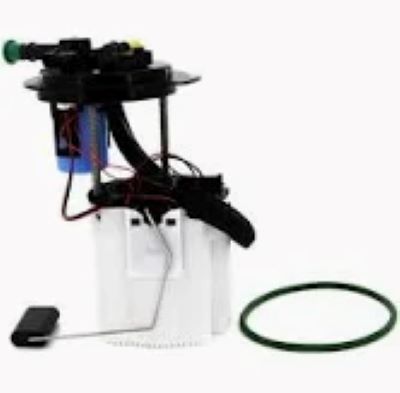Modifying a Fuel Pump for Other Fuels: For much of the changes on fuel pump, you need to correct several factors but also concern load are fuel types, pressure and materials compatibility with fuel. Standard gasoline fuel pumps run at pressures of 40 to 70 PSI, but if you wish to use it with E85 (85% ethanol) or other alternative fuels then some modifications are required. The less energy-dense nature of ethanol-based fuels means they require higher flow rates; the same power produced through gasoline can be as much as 30 percent more fuel volume going in, by one estimate. When the demand for fuel is raised, a pump built for gasoline may not be able to keep up and cause some devastating performance issues or pump failure.
Ethanol-based fuels used for the modified fuel pumps require corrosion-resistant materials. The frustration from the higher octane recommendations was understandable, but not nearly as much with this news regarding ethanol, a fuel that is more corrosive than gasoline and will degrade rubber seals, plastic components and aluminum over time. E85-compatible high-performance pumps utilize stainless steel and Viton (or PTFE, Teflon), since the cquirrosive properties of ethanol that will erode regular internal components. E85 pumps are often built with ethanol-resistant diaphragms and seals, enabling a longer life and continued efficiency for the harsh chemicals being pumped through it.
Using diesel fuel requires changes to the injectors and a switch of the fuel pump for higher-pressure, thicker diesel. Because diesel engines run at far greater pressures — typically from 15,000 to 30,000 PSI in common-rail systems. Converting a gasoline fuel pump over to be compatible with diesel would also necessitate more than just upgrading the pressure capabilities as diesels have a thicker viscosity that would destroy a gas pelunger. Diesel is a less volatile fuel than gasoline so pumps have to ensure that their delivery rates remain constant for combustion efficiency.

One the best known cases of fuel pump adaptation is from the biofuels boom that took place in early 2000s. Biodiesel and ethanol blended fuels become more popular, soon fuel pumps had to be re-designed for newer fuels. For that reason, companies like Bosch developed pumps specifically for gasoline and ethanol and plotted all the properties of each pump such as durability in contact with alcohol, gap closing required to calibrate the flow rate, and others.
Phr asked proven engine guru Richard Holdener to share how he goes about adapting a fuel pump for various fuels, “The trick to changing a fuel pump from one type of fuel to another all comes down to knowing what each fuel requires and selecting materials that will hold up over time,” This principle is true whether you drink ethanol instead of gasoline, diesel, or even biofuels. Fuel composition can have an impact on the pump material selected, meaning that nothing less than an understanding of each fuel's chemical properties is necessary to ensure expected long-term functioning.
The learning curve of the fuel pump is also influenced by temperature. Diesel and biodiesel fuels can congeal in cold temperatures, having to start from a soild state put more load on the pump. Some biofuels may need heaters because they gel at temperatures that standard diesels operate in. Petroleum diesel lubricates fuel pumps up to seven times better than bio-diesel blends, which can cause pump wear and efficiency issues long-term. When biodiesel is involved, that can mean upgrading the internals of a pump for use with a more viscous liquid and adding filtration systems to prevent fuel contamination.
In particular, the choices of fuel pump for different types of fuels are extensive and fuel-specific with a solution from Fuel Pump available too; all optimized not only for performance but also longevity—enabling compatibility with just about any fuel.